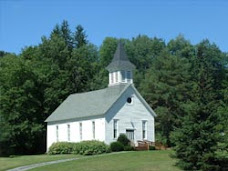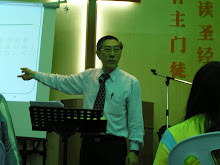There are several forms of church government, the most basic four are: Episcopal, Presbyterian, congregational and a form of nongovernmental. While Episcopal and Presbyterian forms of church government have designated offices to rule the church; to which Jesus’ teachings seem to be against when he said: “Jesus said to them, "The kings of the Gentiles lord it over them; and those who exercise authority over them call themselves Benefactors. But you are not to be like that. Instead, the greatest among you should be like the youngest, and the one who rules like the one who serves. For who is greater, the one who is at the table or the one who serves? Is it not the one who is at the table? But I am among you as one who serves.” (Luke 22:25-27, NIV)
It is observed that both Jesus and Paul assigned the responsibility for discipline to the congregation rather than a bishop or an elder. However, there are also biblical objection to the congregational scheme of government; because it disregards the apostolic (or Episcopal) authority. It is noted also that there was a separation of the offices of bishop, elder, and deacon rather early in church history.
Gk: episkopoi (elders, deacons); Gk: Presbyteroi (overseers or bishops) are the two Greek words used in the New Testament for church leaders. It is noted in the New Testament, the leaders and the members are equally valuable and these two terms are interchangeable in Titus 1:5-7
I believe the rightful model of Church governance is theocratic only, whereby the elders or overseers, together with the congregation conduct themselves in accordance with the will of God to the best of their knowledge.
“Theocracy” comes from the Greek word “Theos” (of God, divine, according to God’s will.) There is no truly theocratic government on earth as such unless one can truly say he/she knows fully well what is the will of God and whatever he/she does is exactly according to the will of God as the following example shows.
An extreme form of “theocracy” is cited online posted on
AP, Thursday, March 02, 2006
Ave Maria: Domino's Pizza Founder Wants Taliban-style Theocracy In Florida
The AP reports today that a new
If Domino's Pizza founder Thomas S. Monaghan has his way, a new town being built in Florida will be governed according to strict Roman Catholic principles, with no place to get an abortion, pornography or birth control. ac
For that matter, the Episcopalian and Presbyterian or “non-govenmental” structure of church government can also be “theocratic” if the people conduct themselves according to the will of God to the best of their biblical knowledge.
The closest model is the Old Testament model whereby the king (David) ruled the nation of
Is there truly a “theocratic” church government today? Even some churches claim to be such as the Romans Catholic Church, please comment.

